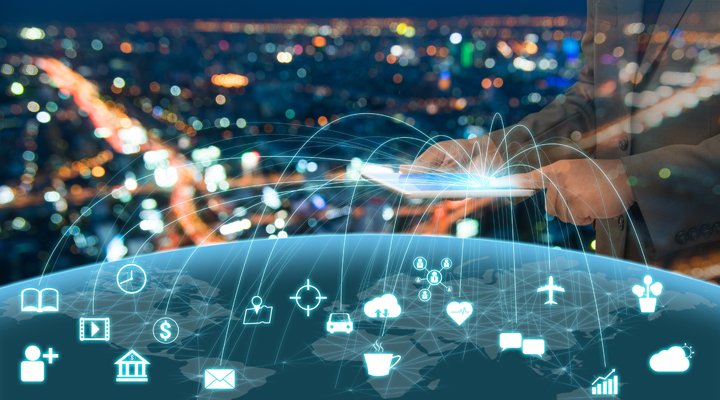The Internet of Things (IoT) has emerged as a groundbreaking technology that is transforming our connected world. By interconnecting everyday objects and devices, IoT has the potential to revolutionize industries, improve efficiency, and enhance our quality of life. In this article, we will explore the power of the Internet of Things and its impact on various aspects of our lives.
Table of Contents
Connected Devices
IoT enables devices to communicate and share data over the internet. From smartphones and wearables to smart home appliances and industrial machinery, these connected devices form the foundation of the IoT ecosystem. They can collect and transmit data, receive commands, and perform actions, creating a network of intelligent and interconnected systems.
Smart Homes
IoT technology has given rise to the concept of smart homes. With IoT-enabled devices like smart thermostats, lighting systems, security cameras, and voice assistants, homeowners can control and automate various aspects of their living spaces. For example, you can adjust the temperature, turn on lights, monitor security cameras, and even receive notifications when there is unexpected activity. Smart homes enhance convenience, energy efficiency, and security.
Industrial Automation
IoT is driving significant advancements in industrial automation and manufacturing. Connected sensors and devices can monitor and control industrial processes, enabling real-time data collection, analysis, and optimization. This leads to improved efficiency, reduced downtime, predictive maintenance, and cost savings. IoT-powered industrial automation has the potential to revolutionize sectors such as manufacturing, logistics, and supply chain management.
Healthcare and Wearable Devices
IoT is revolutionizing healthcare by facilitating the development of wearable devices and remote patient monitoring systems. IoT-enabled wearable devices, such as fitness trackers and smartwatches, can monitor vital signs, activity levels, and sleep patterns. This data can be transmitted to healthcare providers, enabling remote monitoring, early detection of health issues, and personalized healthcare delivery. IoT in healthcare has the potential to improve patient outcomes, reduce hospital visits, and enhance overall well-being.
Smart Cities
IoT is a key enabler of smart city initiatives. By integrating sensors, networks, and data analytics, IoT can optimize the management of urban resources and improve the quality of life for residents. Smart city applications include intelligent transportation systems, smart grids for efficient energy distribution, waste management systems, and public safety monitoring. IoT-driven smart cities aim to enhance sustainability, reduce traffic congestion, and create more livable urban environments.
Agriculture and Farming
IoT is transforming the agriculture industry through precision farming techniques. Connected sensors can monitor soil moisture levels, temperature, and nutrient content, enabling farmers to optimize irrigation and fertilizer usage. Drones equipped with IoT technology can survey crops, detect pests, and assess plant health. By leveraging IoT, farmers can increase crop yields, reduce resource waste, and make informed decisions based on real-time data.
Environmental Monitoring
IoT plays a vital role in environmental monitoring and conservation efforts. Connected sensors can measure air quality, water quality, noise levels, and weather conditions. This data can help in early detection of environmental hazards, urban planning, and resource management. IoT-based environmental monitoring systems contribute to sustainability initiatives and enable better decision-making to protect our natural resources.
Retail and Customer Experience
IoT is reshaping the retail industry by providing enhanced customer experiences. Connected devices and beacons can track customer movements in stores, gather data on preferences and buying patterns, and deliver personalized offers and recommendations. IoT also enables inventory management systems to automatically track stock levels, optimize supply chains, and reduce waste. IoT-driven retail solutions improve operational efficiency, drive customer engagement, and enable retailers to deliver more personalized services.
Kevin Ashton initially used the phrase “the Internet of Things” in 1999 . The phrase originally referred to a certain kind of computer network that could collect a substantial amount of data from all of the physical objects in the offline world. These objects have sensors built into them that collect data and transfer it across IP networks to connections to the Internet. Kevin Ashton asserts that the following elements make up the IoT’s special significance. First, the Internet of Things (IoT) was offered as a fresh and effective way to collect data that was previously impractical. The Internet of Things (IoT) permits the discovery of an almost endless number of previously unknowable truths from these enormous volumes of gathered data. As a result, many manufacturing firms, like the General Electric (GE) Company, are making efforts to transition from being manufacturing to being service-based firms. For instance, already constructed systems may be extended indefinitely by adding new services based on IoT applications, such as IoT-based new car-sharing services or parking lot-finding services. Systems and services may be expanded with comparatively little work to produce new and incredibly potent values and possibilities.
In conclusion, the Internet of Things is transforming our connected world by interconnecting devices, enabling data-driven decision-making, and enhancing efficiency and convenience across various industries. From smart homes and industrial automation to healthcare and smart cities, IoT has the power to reshape how we live, work, and interact with our environment. As IoT continues to evolve and mature, its impact is likely to expand, opening up new possibilities and innovations in the future.



